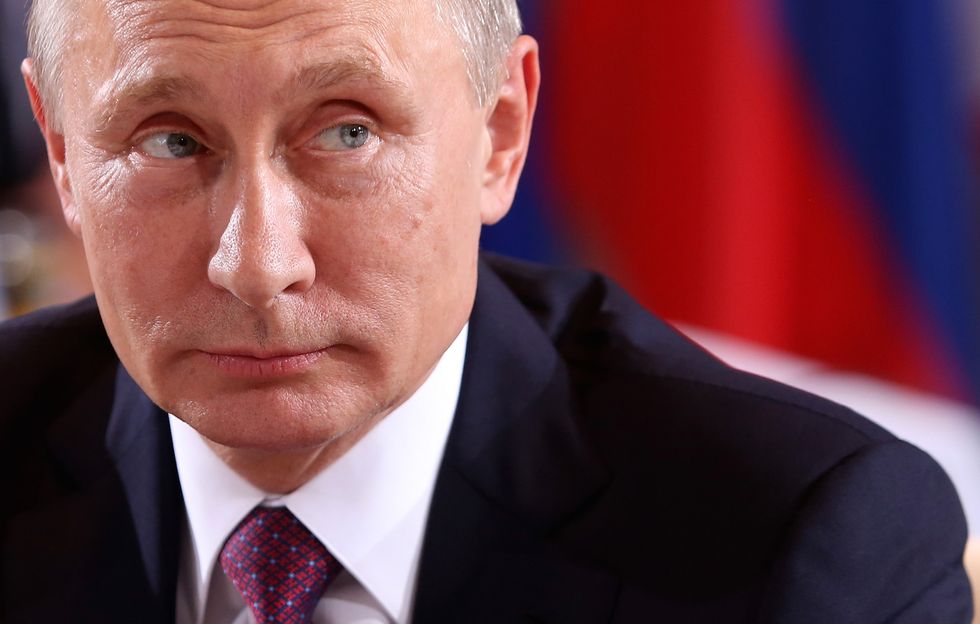
BERLIN, GERMANY - OCTOBER 19: Russian President Vladimir Putin attends a meeting to discuss the Ukrainian peace process at the German federal Chancellery on October 19, 2016 in Berlin, Germany. The leaders of Russia, Ukraine, France and Germany, known as the Normandy Four, met in Berlin to discuss implementation of the peace plan known as the Minsk Protocol, a roadmap for resolving the conflict in Ukraine after Russian forces invaded in 2014 and annexed the peninsula of Crimea. The United States has threatened renewed sanctions on Russia if the country did not either implement the plan in the coming months or arrive at a plan on how to do so. (Photo by Adam Berry/Getty Images)


